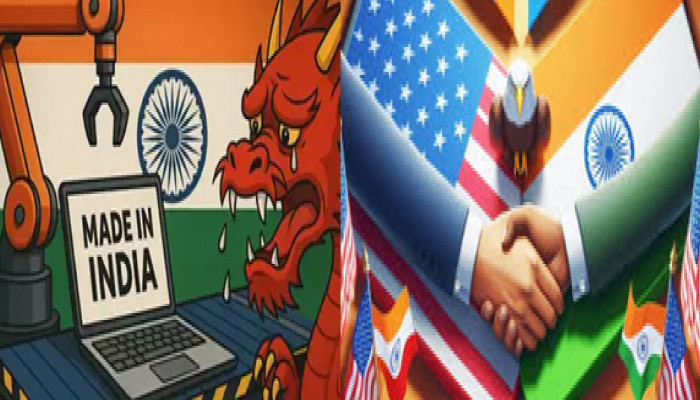Laptop brands move production to India as Trumps' tariffs loom, PLI scheme gathers steam
- In Reports
- 06:18 PM, Apr 22, 2025
- Myind Staff
India's Rs 17,000 crore production-linked incentive (PLI) scheme for IT hardware is starting to show positive results, as many brands that once relied on China are now partnering with Indian contract manufacturers to produce laptops in India.
These partnerships are happening amid growing trade tensions between China and the US. Even though the US government under Donald Trump has currently exempted IT hardware imports from China, companies are speeding up talks with Indian firms for local production. This is mainly due to concerns over possible new tariffs on the sector expected in May. Indian manufacturers are improving their production capabilities while offering global brands benefits like lower tariffs and incentive schemes. They also give these brands the chance to be part of government contracts that require 20-50% local content.
According to industry sources, India’s current manufacturing capacity could replace around 10-20% of the total laptops imported, which amounted to $11 billion in FY2024. Domestic laptop production in India is currently about $1 billion, based on industry data.
The Production Linked Incentive (PLI) 2.0 for IT Hardware, announced on May 29, 2023, has a budget of Rs 17,000 crore over six years. The program offers a 5% incentive on the net increase in sales of products made in India. Manufacturers need to increase the amount of locally sourced components each year to earn more incentives. The government expects PLI 2.0 to attract Rs 3,000 crore in investments, generate Rs 3.5 lakh crore in production value, and create 47,000 jobs across the country.
Recently, Asus set up an assembly line at VVDN Technologies' facility in Manesar after six months of talks about scaling up and localising production. According to Gourab Basu, senior vice president at VVDN, the current production line manufactures one laptop every 240 seconds. "Our commitment to India is very, very strong," Dinesh Sharma, vice president, commercial PC and smartphone system business group, ASUS, said. "When you are trying to shift your production supply chain, cost efficiency is a matter of concern. And the more backwards integrations we can get, the better".
Syrma SGS, based in Gurugram, has made a deal with Taiwan's MSI to manufacture laptops in India. This move comes in response to stricter import rules. As part of the IT hardware Production-Linked Incentive (PLI) scheme, Syrma SGS sees a chance for Indian companies to take advantage of the shift away from high-tariff countries like China and Vietnam. Jasbir Singh Gujral, managing director of Syrma SGS, stated that the company will think about increasing its capacity in order to attract more laptop brands for export.
"We in the industry should catch the bull by its horns and take this opportunity to develop the ecosystem of components based in India," he said. Dixon Technologies has invested over Rs 1,000 crore to set up a new manufacturing unit in Tamil Nadu for making HP Inc laptops. This facility, set to start operations in May, will initially produce two million laptops every year. Dixon has also signed contracts with Lenovo and Asus to manufacture laptops at this plant. Additionally, Dixon is already producing 25-30% of Acer's laptops for the Indian market at their Noida facility.
According to government data, as of December 2024, the Production-Linked Incentive (PLI) scheme has attracted Rs 520 crore in investments, generated Rs 10,000 crore in production value, and created 3,900 jobs.
However, the scheme has seen limited participation, as many international companies continue to import most of the laptops they sell in India. These companies have been benefiting from the 4-5% lower manufacturing costs in China before tariffs were introduced. Despite China's cost advantage, global companies are now working to build similar manufacturing capabilities in India as an alternative base for production.
India's laptop exports are facing challenges due to strict US product testing requirements. One executive mentioned that India doesn't have the right testing facilities, so products must be sent to a laboratory in Shanghai for US export certifications. This process adds extra costs. Asus' Sharma said the company is considering encouraging its global suppliers to set up operations in India. He also offered to share these suppliers with VVDN to help with their efforts to improve their production processes.
VVDN continues to manufacture several components and modules, such as Wi-Fi antennas, camera modules, memory packaging, display assembly, and mechanical parts. The company also plans to set up a facility to produce printed circuit boards.







Comments